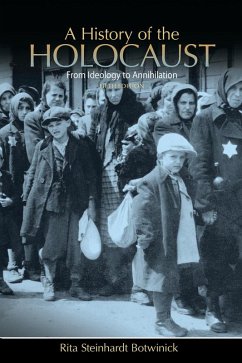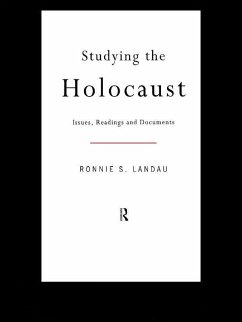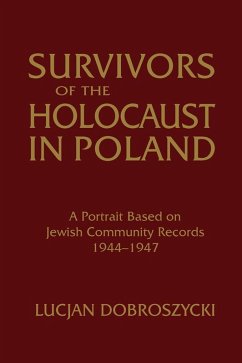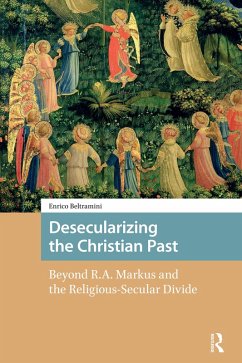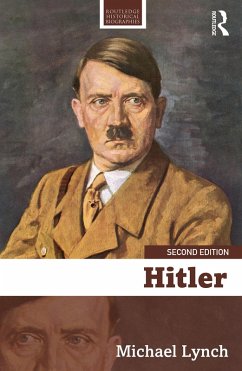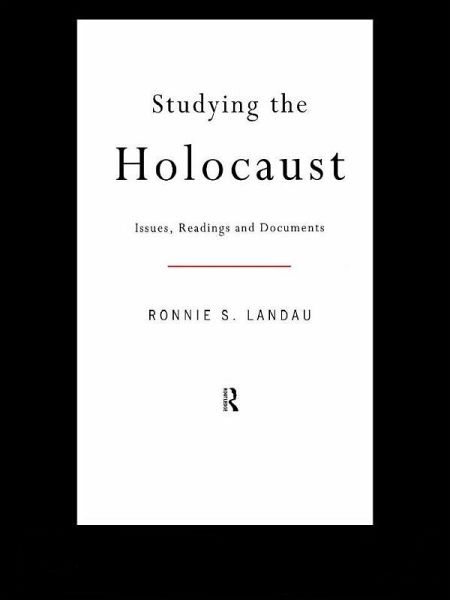
Studying the Holocaust (eBook, PDF)
Issues, readings and documents
Versandkostenfrei!
Sofort per Download lieferbar
38,95 €
inkl. MwSt.
Weitere Ausgaben:

PAYBACK Punkte
19 °P sammeln!
Sensitive and appropriate teaching of the Holocaust is essential at all levels of formal and informal education. The Holocaust Education Reader by Ronnie Landau provides an educational companion for all those teaching this subject. The book is designed to challenge student use of primary resources and encourage extra-disciplinary analysis. This authoritative guide contains: * a guide to major dilemmas confronting teachers * documentary and literary selected readings * suggested teaching activities * an analysis of 'genocide' in the modern era * a chronology of the period * selected bibliograph...
Sensitive and appropriate teaching of the Holocaust is essential at all levels of formal and informal education. The Holocaust Education Reader by Ronnie Landau provides an educational companion for all those teaching this subject.
The book is designed to challenge student use of primary resources and encourage extra-disciplinary analysis.
This authoritative guide contains:
* a guide to major dilemmas confronting teachers
* documentary and literary selected readings
* suggested teaching activities
* an analysis of 'genocide' in the modern era
* a chronology of the period
* selected bibliography, list of principal characters and a glossary of important terms.
The book is designed to challenge student use of primary resources and encourage extra-disciplinary analysis.
This authoritative guide contains:
* a guide to major dilemmas confronting teachers
* documentary and literary selected readings
* suggested teaching activities
* an analysis of 'genocide' in the modern era
* a chronology of the period
* selected bibliography, list of principal characters and a glossary of important terms.
Dieser Download kann aus rechtlichen Gründen nur mit Rechnungsadresse in A, B, BG, CY, CZ, D, DK, EW, E, FIN, F, GR, HR, H, IRL, I, LT, L, LR, M, NL, PL, P, R, S, SLO, SK ausgeliefert werden.





